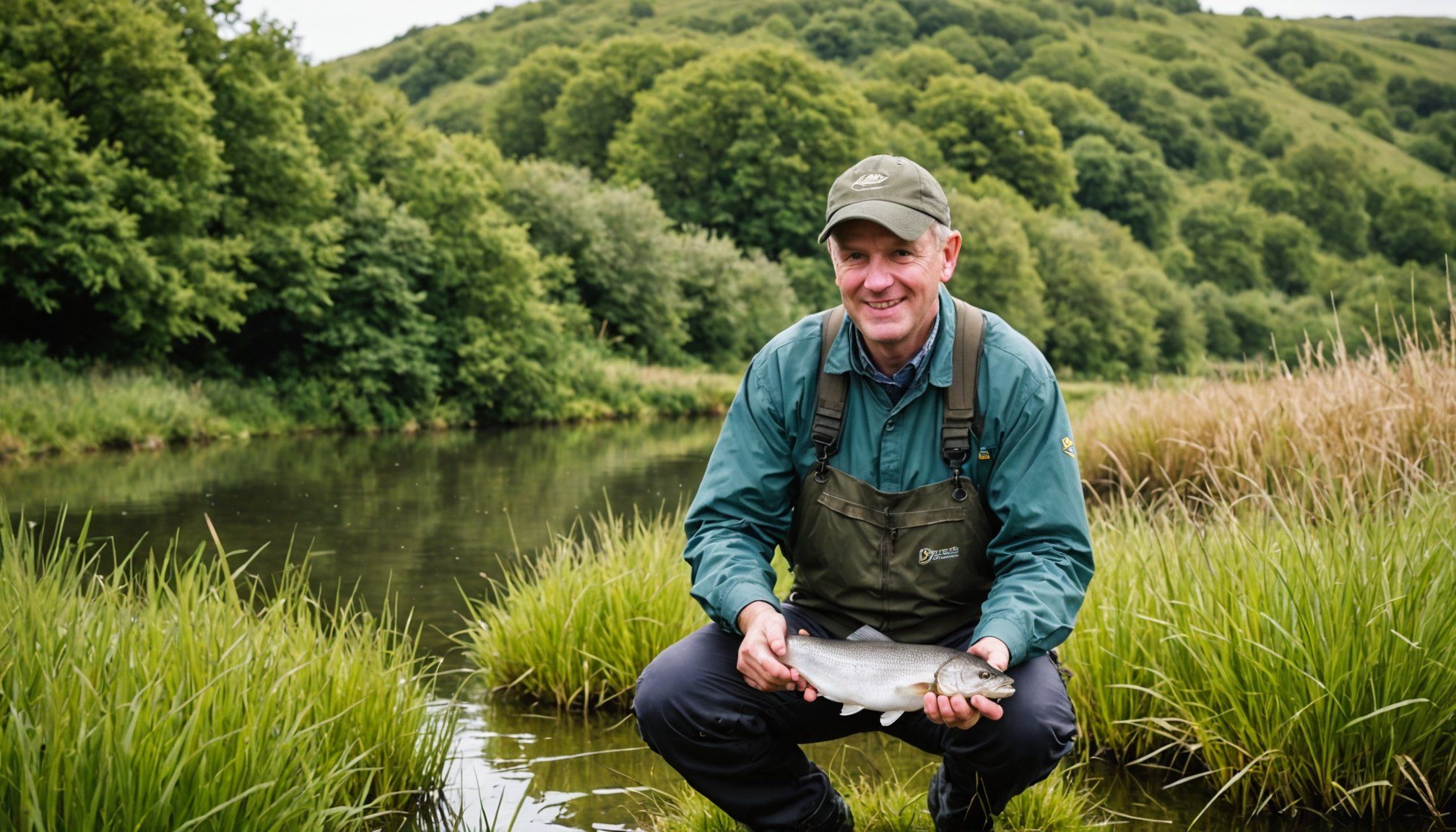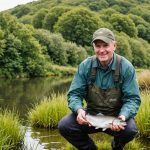Understanding Fish Population Dynamics
Fish population dynamics are crucial to maintaining healthy aquatic ecosystems. Fish population dynamics refer to the study of how fish populations change over time, influenced by various biological, ecological, and environmental factors. Monitoring fish population health indicators, such as spawning success and migration patterns, is essential in evaluating the vitality of fish stocks.
Several factors impact fish populations in UK waters, including overfishing, habitat degradation, and climate change. Overfishing reduces population sizes, leading to decreased biodiversity. Habitat degradation from pollution and coastal development threatens fish spawning grounds, while climate change affects water temperatures and fish habitats.
In the same genre : Mastering rare bird sightings in the uk: the ultimate guide with essential tips and best practices
Biodiversity in aquatic ecosystems ensures resilience against environmental changes. A diverse fish population fosters stability by supporting various marine processes and ecological interactions. When biodiversity is lost, ecosystems become more vulnerable to changes, impacting species survival rates and ecosystem health.
Sustainable fishing practices aim to preserve fish population dynamics by balancing fishery demands with conservation needs. Implementing practices that consider population dynamics supports long-term sustainability and the overall health of aquatic ecosystems. Promoting awareness of fish population dynamics encourages responsible behaviour, safeguarding fish populations for future generations.
Also read : Exploring UK Zoo Breeding Initiatives for the Endangered Corncrake: A Conservation Journey
Effective Strategies for Sustainable Fishing
The adoption of sustainable fishing techniques is vital for preserving marine ecosystems and ensuring fish stocks’ enduring health. Understanding how to execute best practices in catch and release is essential for minimising fish mortality. Anglers are encouraged to use barbless hooks and minimise handling, ensuring swift release after the catch. This careful handling prevents injuries and supports fish population dynamics.
Choosing sustainable gear and bait can significantly impact the environment. Opt for biodegradable materials and eco-friendly products to decrease environmental harm. Sustainable fishing practices not only protect fish populations but also preserve aquatic habitats.
Further, adapting fishing techniques according to local regulations is a crucial aspect of responsible angling. Regulations often vary by region, depending on local ecosystem needs and species conservation requirements. Staying informed and compliant ensures that fishing activities do not jeopardise fish populations.
Here are some sustainable fishing practices:
- Use species-appropriate equipment
- Follow seasonal restrictions
- Report catches to local authorities
By integrating these strategies into fishing routines, anglers can play a significant role in maintaining healthy fish populations and thriving aquatic ecosystems. The future of fishing rests on collective, responsible action.
Legal Guidelines for Anglers in the UK
Navigating the world of fishing regulations is crucial for anglers who wish to engage in legal compliance while enjoying their recreational or commercial activities. Understanding these guidelines helps protect fish populations and ensures the sustainability of fishing sites across the UK.
Overview of Current Fishing Laws
Fishing regulations in the UK are designed to maintain balance and protect marine life. These laws dictate the methods, times, and locations where fishing can occur. Adhering to fishing laws prevents over-exploitation and supports fish population recovery.
Species Protection Regulations
Some fish species receive special protection due to their vulnerability. It is crucial for anglers to familiarise themselves with species protection regulations to avoid unintentional infringement. Regulations can include catch-and-release rules, size limits, and closed seasons to promote population growth and species survival.
Permits and Licensing Requirements
Obtaining the necessary permits and licences is a legal requirement for fishing in the UK. Lack of compliance may result in steep fines and other legal repercussions. Therefore, anglers should regularly check for any updates or changes to permits and licensing requirements to remain informed and responsible. Engaging in lawful fishing keeps waterways secure for future generations.
Community Initiatives and Conservation Efforts
Engagement in community fishing programs has grown increasingly pivotal in promoting sustainable practices. Local organizations play a vital role by orchestrating events that advocate for ecological balance and responsible angling. These programs not only educate but also empower individuals to partake in the preservation of fish populations.
Participation in fish habitat restoration projects has yielded tangible benefits. Restored habitats offer safe environments for spawning and growth, directly benefiting fish population dynamics. These efforts often involve removing pollutants, re-establishing native vegetation, and rehabilitating waterways, ensuring long-term sustainability.
Moreover, educational programs for young anglers are indispensable. Early exposure to sustainable fishing techniques encourages future generations to adopt practices that benefit marine ecosystems. By integrating conservation education into schools and community centers, youths learn the importance of biodiversity and the role they play in its preservation.
Involvement in these initiatives fosters a culture of conservation-minded individuals who are equipped and eager to make a difference. It is through collaborative efforts such as these that substantial progress can be achieved in safeguarding aquatic ecosystems for the future, ensuring that lively fish populations continue to thrive.
Case Studies of Successful Conservation
In successful conservation projects, practical strategies have demonstrated that effective stewardship can rejuvenate fish stocks. One notable example is the River Wandle project in London, where community involvement led to fish population recovery. Volunteers removed pollutants and restored native plants, resulting in increased biodiversity.
These initiatives highlight the profound impact of community involvement. Local collaboration often accelerates progress, empowering residents to contribute insights and resources. Volunteer-driven efforts unify communities with a shared goal: enhancing aquatic environments.
Analyzing community-led conservation showcases substantial statistical outcomes. In the River Wandle project, fish numbers rose by 35% within two years, indicating the effectiveness of comprehensive restoration plans. Improved habitats provided essential breeding grounds, facilitating natural growth cycles.
Beyond numeric success, these projects inspire long-term commitment to sustainability. They teach us that collective action can reverse ecological damages, returning vitality to once-threatened ecosystems. Such projects serve as blueprints for future endeavours, demonstrating that with dedicated teamwork, positive ecological change is achievable.
Emphasizing community involvement not only fortifies ecosystems but also fosters a collective sense of ownership and responsibility. These case studies are regular reminders of the power inherent in collaborative environmental conservation efforts.
Resources for Responsible Fishing
Embarking on a journey towards responsible fishing encompasses a wealth of fishing resources. These tools not only enhance expertise but also promote conservation practices. Anglers can explore various educational materials, including recommended books and online resources, to deepen their understanding of sustainable fishing techniques.
Recommended Reading and Websites
Delve into books that elucidate the intricacies of fish population dynamics and sustainable fishing. Online resources such as official environmental websites provide crucial updates and tips on responsible angling practices. These resources are invaluable for honing skills and staying informed about ecological impacts.
Apps for Tracking Fishing Regulations and Catch Limits
Technological advancements have paved the way for apps designed to assist with legal compliance. These tools allow real-time tracking of changing fishing regulations and catch limits, ensuring anglers are always in accordance with the law. Employing such apps not only simplifies adherence but also contributes significantly to fish population recovery and sustainability efforts.
Workshops and Events for Anglers
Engage in workshops and events tailored for anglers keen on expanding their conservation knowledge. These gatherings offer networking opportunities and foster a community of like-minded individuals committed to preserving aquatic ecosystems. Engaging in these activities encourages continuous learning and allows the exchange of innovative ideas.











